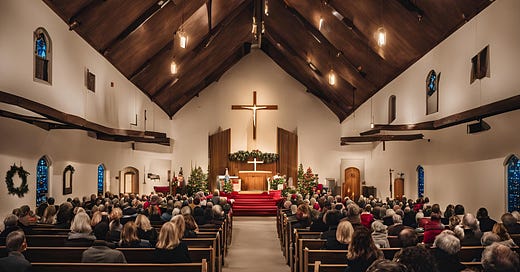Like so many Christmas Eve nights before it, our house smelled like Fraser Fir and cookies baking in the oven. The TV was on a heavy rotation of The Grinch, Elf, and A Christmas Story, and my kids swung like a pendulum between checking on cookies, counting presents, and watching a movie. The Christmas tree shined as …
Keep reading with a 7-day free trial
Subscribe to Believers in Exile to keep reading this post and get 7 days of free access to the full post archives.




